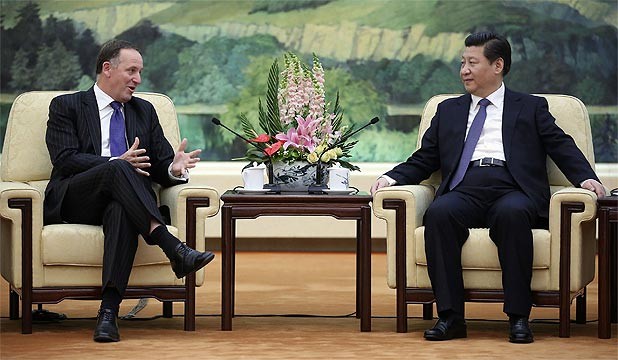China and New Zealand sealed a package of 10 agreements on Thursday during Chinese President Xi Jinping's first state visit to the southwestern Pacific country, according to the Global Times.
Covering a wide range of areas, including those on the economy, culture and agriculture, the set of agreements signals a rounding out of cooperation in the bilateral relationship between the two countries.
Following talks with New Zealand Prime Minister John Key, Xi said that the bilateral relationship has been elevated to the level of a "comprehensive strategic partnership" because of the mutual respect and trust shown by both sides.
In a joint statement, Xi and Key declared: "The New Zealand-China relationship shows that countries with different political systems, history and cultural traditions and at different stages of development can constructively cooperate together."
Among the agreements signed Thursday is one allowing New Zealanders to work on official television productions to be aired in Chinese media. Under the co-production arrangement, producers on either side can apply for funding in each others' countries to share costs, and shift staff and equipment between them more easily, according to Radio NZ.
Co-productions, as agreed, must pass approval by both the New Zealand Film Commission and China's State Administration of Press, Publication, Radio, Film and Television.
New Zealand Minister of Arts, Culture and Heritage Maggie Barry particularly lauded the TV co-production deal, saying: "It is a 1.3 billion people market, a fantastic opportunity for New Zealand production companies to now be part of that official co-production status. It is going to provide wonderful opportunities not just for access to the larger market, but also to be able to leverage foreign investment and little details that might bog down a production."
Aside from TV co-production, the other formal agreements in the package include cooperation on climate change efforts, on Antarctic development, on tourism matters, on food supervision and traceability, on visa processing facilitation, on mutual recognition of higher education academic qualifications, and on inter-country local government exchanges and friendships.



























